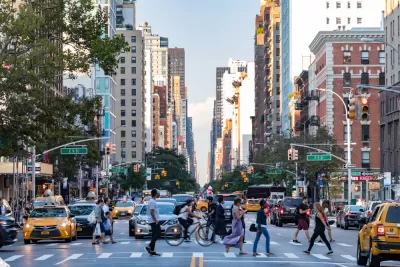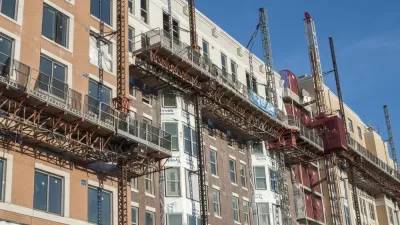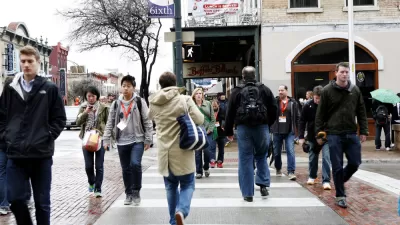Reports of the city’s death have been greatly exaggerated, according to new research from Smart Growth America.

Smart Growth America’s 2023 Foot Traffic Ahead (FTA) report firmly debunks the “death of the city” predicted during the pandemic. According to the report, “the city endures, and across most metros, grew walkable urbanism.”
The report examines changes in walkability in the nation’s 35 largest metropolitan areas, how that has impacted local housing costs, and “provides policymakers with recommendations on how to increase both the supply of and access to equitable, walkable development while safeguarding affordability.”
FTA finds that walkable urban places remain highly desirable, provide the most economic opportunity, and have a range of other benefits, but limited supply means many of these places are increasingly unaffordable for many Americans. “The major reason for the high walkable urban price premiums is the artificial constraint on walkable urban land availability,” the report states, blaming restrictive zoning for much of the problem.
Walkable urban areas have the potential to improve community health by promoting physical activity, can reduce emissions by decreasing car use, and can advance equity by bringing access to economic opportunity. It is critical that people of all backgrounds, especially those historically disadvantaged by racist land use, housing, and lending policy, have access to walkability and all the benefits associated with it.
The report recommends that policymakers focus on increasing the supply of walkable communities, reforming outdated zoning, planning for the impacts of climate change, and protecting affordable housing.
See the source article for a link to the full report.
FULL STORY: Foot Traffic Ahead

Alabama: Trump Terminates Settlements for Black Communities Harmed By Raw Sewage
Trump deemed the landmark civil rights agreement “illegal DEI and environmental justice policy.”

Study: Maui’s Plan to Convert Vacation Rentals to Long-Term Housing Could Cause Nearly $1 Billion Economic Loss
The plan would reduce visitor accommodation by 25% resulting in 1,900 jobs lost.

Planetizen Federal Action Tracker
A weekly monitor of how Trump’s orders and actions are impacting planners and planning in America.

Wind Energy on the Rise Despite Federal Policy Reversal
The Trump administration is revoking federal support for renewable energy, but demand for new projects continues unabated.

Passengers Flock to Caltrain After Electrification
The new electric trains are running faster and more reliably, leading to strong ridership growth on the Bay Area rail system.

Texas Churches Rally Behind ‘Yes in God’s Back Yard’ Legislation
Religious leaders want the state to reduce zoning regulations to streamline leasing church-owned land to housing developers.
Urban Design for Planners 1: Software Tools
This six-course series explores essential urban design concepts using open source software and equips planners with the tools they need to participate fully in the urban design process.
Planning for Universal Design
Learn the tools for implementing Universal Design in planning regulations.
Caltrans
Smith Gee Studio
Institute for Housing and Urban Development Studies (IHS)
City of Grandview
Harvard GSD Executive Education
Toledo-Lucas County Plan Commissions
Salt Lake City
NYU Wagner Graduate School of Public Service





























